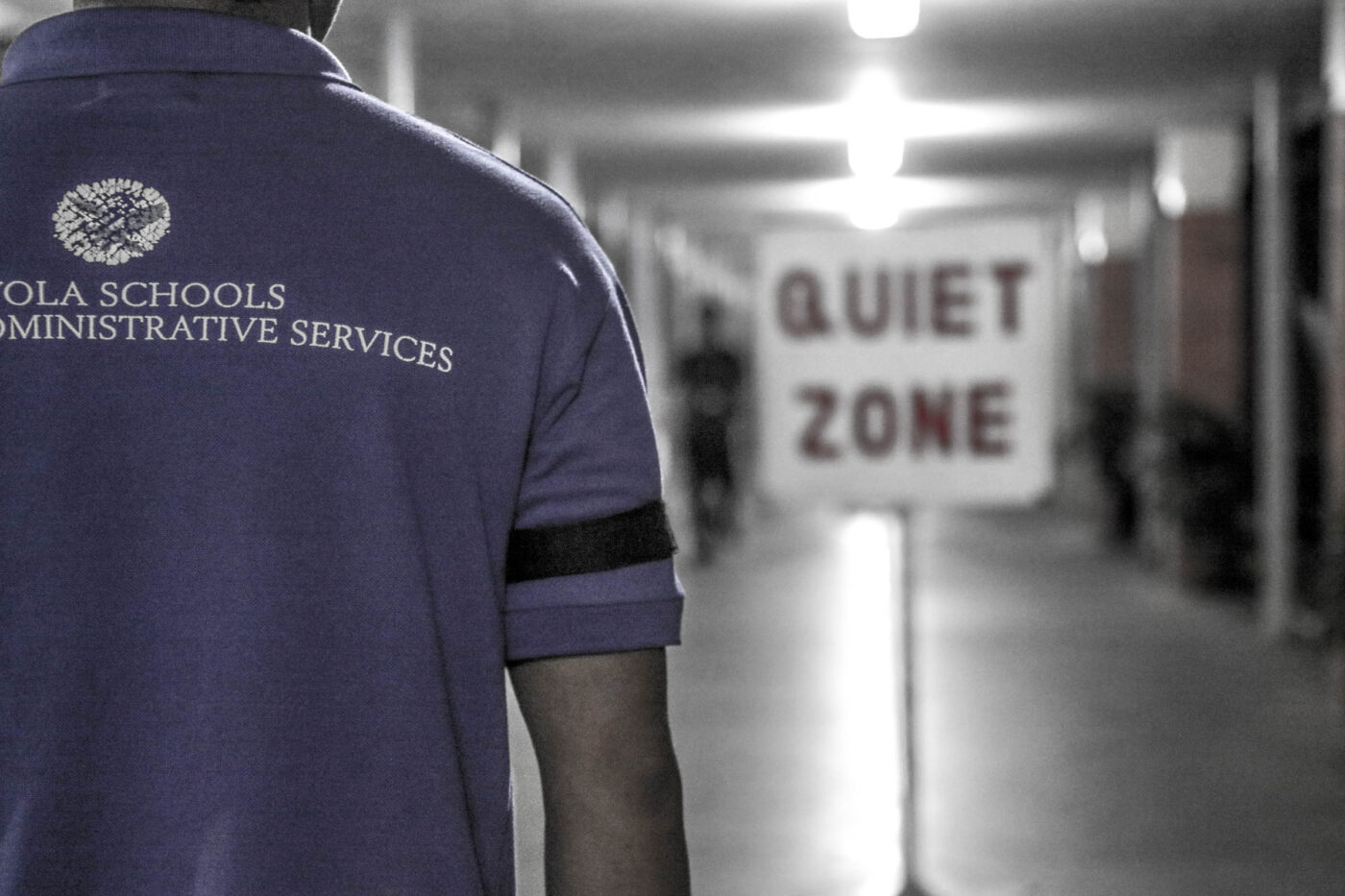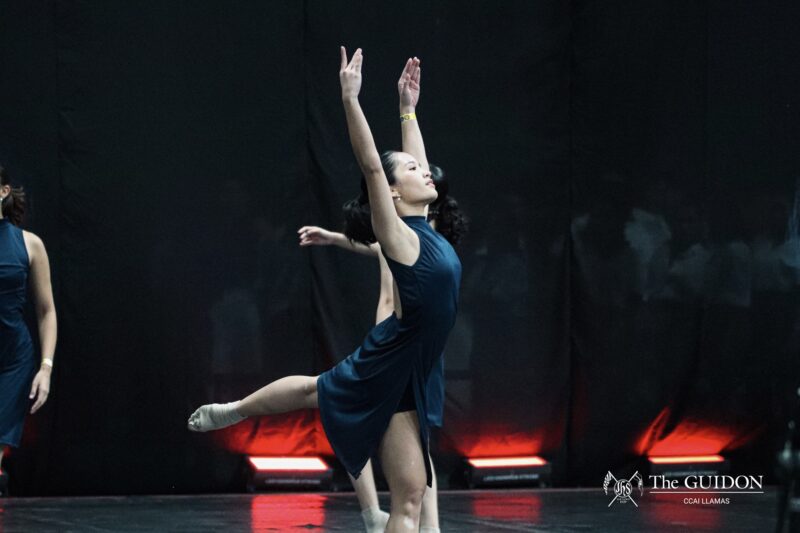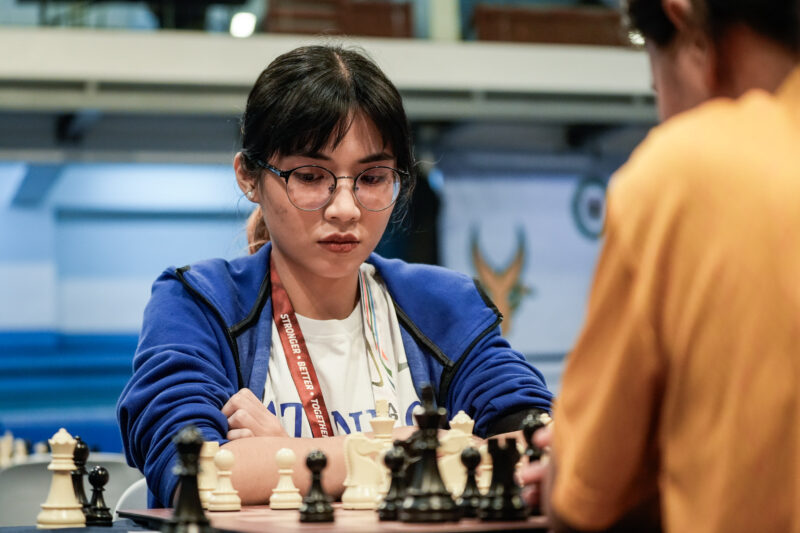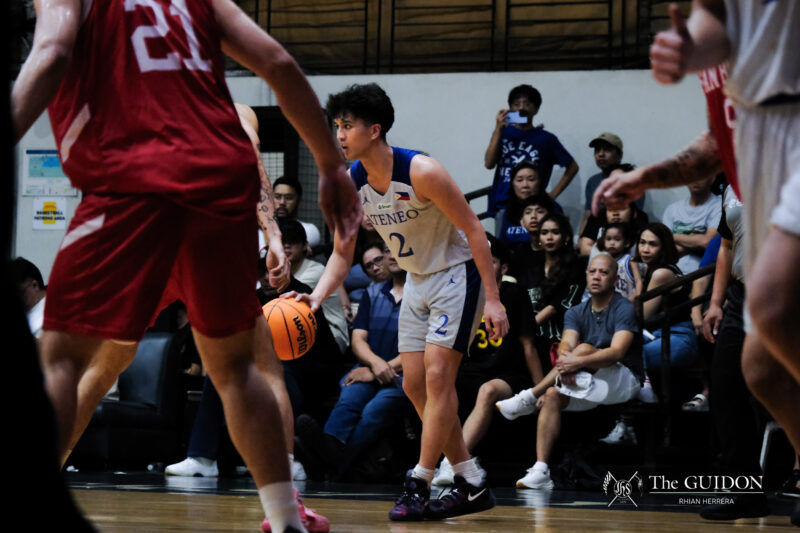IN A sign of unity, members of the Ateneo Employees and Workers Union (AEWU) are wearing black armbands to call on the Ateneo management to respect the terms of the Collective Bargaining Agreement (CBA). Some armbands bore the slogans, “Ateneo, can your P210 support us?” and “Manindigan sa counterproposal.”
A collective bargaining agreement is a series of negotiations between private employers and union members to determine terms and provisions of employment.
On August 5, AEWU announced a rift in negotiations after the Ateneo allegedly withdrew their counterproposal on the effectivity of the current CBA being discussed. Collective Bargaining Agreements require proposals from both parties to start negotiations.
According to AEWU, the original agreement between both parties was for the effectivity of the CBA to start on June 1, 2017 until May 31, 2019, and would have full retroactivity once the CBA negotiations are completed.
The Ateneo asserted that full retroactivity was only applicable if the negotiations are completed by November 30, 2017, which led to the withdrawal of their counterproposal.
“Ang pagbawi ng Ateneo ng kanilang counterproposal sa effectivity ng CBA ay maituturing na Unfair Labor Practice (ULP) dahil ang pagtangging panindigan ang counterproposal ay bargaining in bad faith,” said the Union in a statement.
(The Ateneo’s withdrawal of their proposal on the effectivity of the CBA can be considered a ULP because the refusal to uphold the counterproposal is tantamount to bargaining in bad faith.)
Moreover, the AEWU also protested the Ateneo’s assertion that they had the sole power to set General Wage increases. “Ang pagbibigay nito bilang counterproposal ay maituturing na refusal to bargain— isa ring ULP— dahil ang wages ay mandatory subject of bargaining sa ilalim ng Labor Code,” said the Union.
(The Ateneo’s inclusion of this in their counterproposal can be considered a refusal to bargain— another ULP— because wages are a mandatory subject of bargaining under the Labor Code.)
The last CBA was signed in 2014, after AEWU filed a notice of strike under the leadership of then president Tobias Tano due to stalled negotiations. The 2014 CBA was finalized with the option to renegotiate the terms after three years.
This year, as part of ongoing negotiations, the Union has enlisted legal representation, in a break with previous negotiations.
“‘Yung sa mahabang panahon na pagkakaalam namin, akala namin, ang yabang pa namin na CBA namin is okay, ‘yun pala, hindi (For the longest time we would brag about the terms we got for the CBA, but we discovered that they were not favorable to us),” said AEWU President Nomeriano “Sonny” Amata.
The decision was initially opposed by the administration.
“Pinilit namin talagang makapagpasok ng abogado sa negotiation table at naipasok naman namin. Kasi allowed naman talaga siya ng batas. Ayaw lang siya ng Ateneo before dahil ang sabi ng Ateneo, ‘We are one big family. Bakit hahaluan mo ito ng hindi natin pamilya?’” said Amata.
(We insisted on hiring a lawyer to represent us in the negotiation table. The Ateneo acceded to our request because it really is allowed. They were against the decision before because they said, “We are one big family. Why will you mix outsiders in our discussions?”)
Negotiations ‘in good faith’
But despite the added element of legal representation, John Gokongwei School of Management (JGSOM) Dean and CBA negotiator Luis Dumlao, PhD said that both parties remain cordial and willing to listen.
“They of course, naturally, want to do their best, in their best interest, and the administration wants to do what’s in their best interest, but ultimately, we have our goal, we have the same goal, which is to do what’s best for the Ateneo…All stakeholders are considered to the best of our ability,” he said.
Dumlao said that the Union has raised valid concerns, and that the administration is willing to redress their grievances, but noted that the CBA is not the only avenue for addressing pertinent issues. Dumlao refrained to enumerate specific examples.
“[The AEWU has raised] understandable concerns, and we are listening to them. Whether the CBA is the proper forum to resolve these…certainly it is the right forum. I think it’s a good forum for [the administration] to listen to their concerns…There are issues that we can resolve during the CBA, but there are issues that we cannot resolve in the CBA,” he said.
“[The armbands that they wear are] their expression…it’s their right to express what they think. For us, it is a matter that we have to discuss among ourselves in good faith and in consideration of the actual financial status of the University,” he added.
According to Dumlao, both union and non-union employees have seen their salaries increase over the past 10 years. General increases, or cost-of-living adjustments, are in place to account for inflation. Merit increases, raises in pay commensurate to the performance of employees, have also been afforded to all employees regardless of union membership.
Together with the salaries of faculty members, wages and salaries account for at least 70% of the total revenue of the University, as per Commission on Higher Education regulations. There has not been word yet on how these wages and salaries would be affected by the current dip in enrollment due to the K-12 program.
Addressing grievances
However, Amata said that aside from the CBA negotiations, the Union is also involved in bringing individual grievances to the administration.
“Sa mga miyembro natin, hindi naman lahat ng mga manggagawa rito ay tamang-tama at eksaktong eksakto ang nararansan mula sa kanilang supervisors, pataas sa mga managers, papunta sa mga employers…Ang tinututukan namin dito ay ‘yung mga miyembro namin na hindi kayang ipagtanggol ‘yung sarili nila sa panggigipit minsan ng mga supervisors,” Amata said.
(Among our members, not all of them experience fair and equitable treatment from their supervisors, managers, and employers…We want to focus on workers who are not capable of defending themselves from the abuses of their supervisors.)
Under Title VII, Article 255 of the Labor Code of the Philippines, while the Union is the sole entity allowed to negotiate with the employers through the CBA, individual employees retain the right to present their grievances directly to the administration.
“Pagka-mayroong ganoon na, tumatawag sila sa amin, ‘Ano po ba ang gagawin namin? Ganito na ang nangyayari sa amin.’ Doon kami nag-e-exist, doon kami lumulutang para alamin kung ano ang sitwasyon, kung ang mali ba ay ‘yung aming miyembro, o ang may kalabisan ay ‘yung supervisor. So doon kami napapakinabangan,” Amata said.
(When people ask us, “What are we supposed to do? This is what happened to me,” we help them understand the situation, and determine whether the employee or the employer is at fault. We assist the employees in this way.) With reports from Michelle D. Abad and Briane B. Dela Peña.
EDITOR’S NOTE: The article has since been edited to reflect the following changes: The statement “[T]he original agreement between both parties was for the effectivity of the CBA to start on June 1, 2017 until May 31, 2019, and would have full retroactivity once the CBA negotiations are completed,” has been attributed to AEWU. There were also no strikes in 2014 as mentioned in a previous version of this article. Rather, AEWU only served a notice of strike. The union and the administration were able to agree on a CBA before the union proceeded with their strike.







